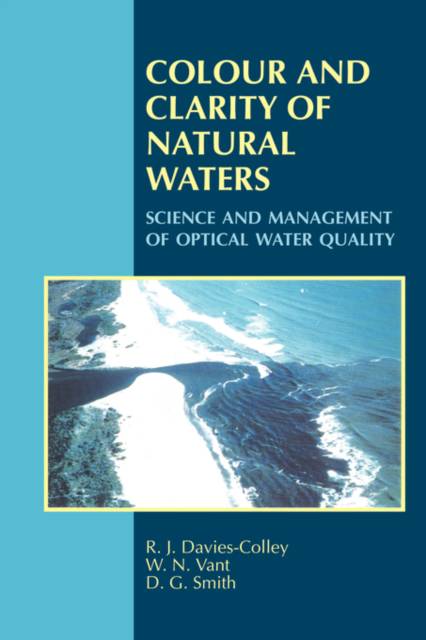
- Retrait gratuit dans votre magasin Club
- 7.000.000 titres dans notre catalogue
- Payer en toute sécurité
- Toujours un magasin près de chez vous
- Retrait gratuit dans votre magasin Club
- 7.000.0000 titres dans notre catalogue
- Payer en toute sécurité
- Toujours un magasin près de chez vous
108,45 €
+ 216 points
Description
Color and Clarity of Natural Waters introduces the basic concepts of aquatic optics and explains the relationships of different optical characteristics to the composition of the water and color and clarity phenomena. This scientific understanding is the basis for management of the optical quality of waters. The practical management of color and clarity of natural waters is covered in depth with guidelines for the protection of optical water quality. Case studies illustrate concepts and management principles with practical examples such as the effects of waste discharge and of phytoplankton growth. The authors look to the future of optical water quality, identifying research needs in aquatic optics as applied to the practical problems of water management. Appendices define quantities, give measurement "recipes" and worked examples to help the reader in the practical management of optical water quality. Originally published in 1993, Color and Clarity of Natural Waters will be of interest to water quality professionals, water resource engineers and managers, government agencies, aquatic biologists, ecologists and students in environmental management and water and wastewater courses. R. J. (Rob) Davies-Colley is a Principal Scientist leading a group of researchers in the field of aquatic pollution at the National Institute of Water and Atmospheric Research (NIWA) in Hamilton, New Zealand. He has been a researcher in water quality and related fields at NIWA since 1977. He has lead various projects in the field of optical water quality and is the author of more than 70 refereed scientific papers in diverse areas of riparian ecology and water quality. W. N. (Bill) Vant is a senior water quality manager with Environment Waikato (a regional government body charged with environmental management) in Hamilton, New Zealand. He was a researcher with NIWA from 1980 to 1997. His scientific contributions include identification of research needs for lake management and research on estuarine water quality. D. G. (Dave) Smith is a deputy chief director with the New York Department of Environmental Protection, Bureau of Water Supply, Valhalla, New York and has responsibility for water quality investigations to ensure suitabilty and safety of supply waters. He worked as a scientist at NIWA from 1986 to 1996 with research contributions in the areas of water quality management and human perception of natural waters.
Spécifications
Parties prenantes
- Auteur(s) :
- Editeur:
Contenu
- Nombre de pages :
- 344
- Langue:
- Anglais
Caractéristiques
- EAN:
- 9781930665712
- Date de parution :
- 01-04-03
- Format:
- Livre broché
- Format numérique:
- Trade paperback (VS)
- Dimensions :
- 152 mm x 229 mm
- Poids :
- 458 g

Les avis
Nous publions uniquement les avis qui respectent les conditions requises. Consultez nos conditions pour les avis.






